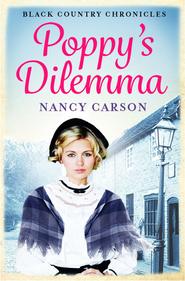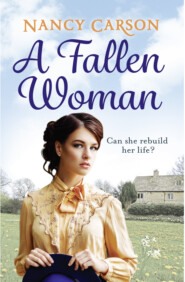По всем вопросам обращайтесь на: info@litportal.ru
(©) 2003-2024.
✖
Rags to Riches
Автор
Год написания книги
2018
Настройки чтения
Размер шрифта
Высота строк
Поля
‘Not like jazz,’ he remarked.
She moved away from the table when her cup was full. ‘You like jazz, then?’ she asked when he’d rejoined her.
‘Oh, I love jazz.’
‘I like jazz as well,’ she replied truthfully and sipped her tea. ‘I used to listen to jazz records all the time. The people I used to lodge with – before I went to live with my sister – have a daughter who was a keen jazz fan. She used to get hold of some obscure records from America. She’s a musician as well and we used to play it together, mimicking it – just for a laugh, me on the piano usually, she on clarinet. I don’t get the chance to hear much now. Occasionally I hear a snatch on the wireless. Yes, I quite like jazz.’
‘You play piano as well?’ He sounded surprised.
‘I started out on piano.’
He nodded his approval. ‘Oh, it’s great, jazz. It’s not so contrived as this stuff we play here, is it? You know where it comes from?’
‘America, I suppose.’
‘Africa.’ He drew on his cigarette and paused long enough for this gem of information to register. She saw his probing eyes, steady upon her, awaiting her response.
‘Africa?’
‘Missionaries.’ Now he took a gulp of tea.
‘Missionaries?’
‘Missionaries. Missionaries achieved Africanisation of their own hymnbooks, you know, when they were converting the natives to Christianity.’ He sounded pat, as if he’d held the same discussion many times before.
‘I’m not sure I understand.’
‘Well, African tribes interpreted our Christian hymns their own way, using the influences of their own music. That’s what I mean. You know…their own ritual music – chants, tribal songs – stuff like that.’
‘And that was jazz?’
‘Not yet. It was just the beginnings.’ He was laughing. She had not seen him laugh like this before; he always seemed so serious; a touch preoccupied maybe.
Maxine lifted her cup and sipped her tea again, still drawn to his penetrating eyes like a beautiful moth drawn to a night-light.
‘You see,’ he went on, ‘African music developed in a way totally differently to our European music. It was less abstract, less aesthetic – do you know what I mean?’ Maxine nodded her increasing understanding. ‘It was more practical, more of a language – a way of communicating – and they could alter its meaning or emotion just by altering the pitch of a note, or changing the inflection in the voice.’
‘So it was more functional than music for mere art’s sake?’ She was glad that her interest in his explanations was genuine. ‘Is that what you’re saying?’
‘Yes, and more rhythmic. Much more rhythmic. They used what they could lay their hands on for percussion instruments. A stick to beat out a rhythm. On a hollowed out tree trunk, for instance.’
‘Yes, of course.’ Maxine had never seriously pondered the roots of jazz before. It was quite intriguing. Brent Shackleton was certainly intriguing.
Brent puffed more smoke into the room, then drained his cup. ‘Then, when those poor Negroes became victims of the slave trade, these songs – these hymns if you like – evolved into work songs with lyrics to suit the situation. The slave owners encouraged them to sing such songs – apparently they improved the work rate. They weren’t daft, you know. When the slaves were freed, the more musically inclined of them that could afford it got hold of proper instruments. Some got to be brilliant and, because of their own Negro influences – you know, using complicated rhythms and altering notes and sounds by pitch and inflection – jazz evolved.’
‘I never realised,’ Maxine said. ‘I thought somebody just invented it.’
‘Well, there you are. You learn something every day…Fancy another cup of tea?’
She leaned over to the trestle table to return her empty cup and saucer. ‘Oh, I’d best not, thank you. Any more and I’ll be plaiting my legs,’ she remarked self-effacingly.
‘And you can’t play the cello with your legs plaited.’ His eyes met hers directly with a candour that prompted her colour to rise at what she imagined he implied though, to her surprise, she did not mind. ‘Anyway, what are you doing afterwards, Maxine?’
‘After the concert?’ Her heart fluttered while she sipped tea again, her eyes down, lids lowered, in an effort to conceal her intensifying blushes.
‘There’s this club I go to…I wondered if you’d like to come.’
She managed to stifle the urge to choke. ‘I can’t,’ she said, surprised at the depth of her disappointment. ‘Sorry. Not tonight at any rate. But thanks for asking.’
‘Some other time, maybe?’
‘Yes…I’d like that.’ She felt guilty for encouraging him, because of Stephen. But what was wrong with a half promise to go out with Brent at some other time? It was a vague agreement anyway. It might never happen…And yet why shouldn’t it? She was not married to Stephen. She was not even engaged. Nor ever likely to be.
‘Is it because of your young man that you can’t come?’
‘No, not just him,’ she said. ‘My whole family is out there. There’s a celebration afterwards. It’s my twenty-first today, you see.’
‘Your twenty-first?’ Brent turned round. ‘George, d’you hear that? It’s Maxine’s twenty-first today.’
It seemed that all the rest of the orchestra heard it, too, and at once Maxine was swamped with congratulations from all directions.
‘Your first concert with the band on your twenty-first birthday, eh?’ somebody said. ‘You’ll never forget that.’
Maxine flashed a polite smile.
‘Does the boss know?’ another person asked.
‘We’ll make sure he does,’ yet another replied.
Maxine looked with amused bewilderment from one to the other, thanking each well-wisher. What had she done to deserve all this attention? She looked at Brent and shrugged.
‘Will you excuse me, Maxine?’ he said.
Someone else stepped up and began talking to her, then another, and another. Before long, she was the centre of an animated group. They spoke as if they had known her all their lives and she felt easy with them. But afterwards she could not remember a word any of them had said; her mind was awhirl with Brent’s offer to take her out and her regret that she’d had to refuse. But she did have Stephen to consider after all. She could hardly dump Stephen on a whim and take off with Brent.
But what about the beautiful girl she’d seen Brent with? Surely she warranted some consideration too? Besides, how could she compete with a girl like that? How could any man want anybody else when he already had a girl as beautiful as that? A girl with those looks could have her pick of men. Why would Brent be interested in dull Maxine Kite? These questions plagued her till she sat down at her cello for the second part of the concert and for some minutes into it; until she made herself pay attention lest she made any embarrassing mistakes.
Her embarrassment, however, came at the end of the performance. Everyone, including Leslie Heward the conductor, had taken their final bows when he held out both hands to Maxine and gestured for her to stand up. Bewildered, she obliged. But she was even more bemused to receive a round of applause and some cheers, not only from the auditorium, but from the orchestra as well. Still reeling from the shock of it all she turned around and saw that Brent Shackleton and George, his fellow trombonist, were holding up a huge poster for all to see, evidently hastily cobbled together, that proclaimed in huge letters, ‘Maxine – 21 today’. To her embarrassed delight, he and George then led the singing of ‘Twenty-one today’.
Almost at once, the audience was good-humouredly joining in and, when that finished, there rose the inevitable strains of ‘Happy Birthday to You’.
At any concert of classical music there are always huge bouquets of flowers ready to be presented to soloists, leading musicians and so on. So it was a surprise to nobody, except to Maxine, to find herself being presented with such a bouquet from Leslie Heward, who shook her hand and stepped forward to afford her a fatherly peck on the cheek. She grinned with delight, said thank you and bobbed a neat curtsy, which had the combined effect of invoking more cheers.
‘I can’t believe all this,’ she said in an aside to Gwen Berry.
‘It’s not every concert when one of our members is twenty-one,’ Gwen replied. ‘Most of them are at least twice that age. Make the most of it, my girl.’
Three motor cars and a motorcycle, conveying family and friends, all jovial and lively, left Birmingham Town Hall after the concert and travelled in convoy to Daisy Road where Mrs Fothergill, the next door neighbour, had been babysitting for Aldo.











